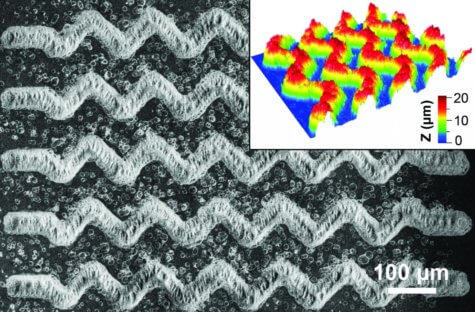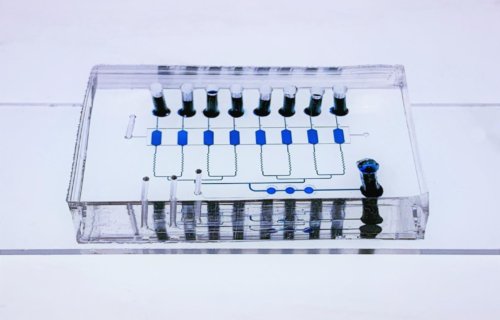WASHINGTON — Testing for breast cancer can be a difficult and invasive process for many patients. A new study reveals how a small computer chip may someday make that exam as simple as a blood test.
Researchers from the University of Kansas say they’ve created a device that can detect early-stage and advanced breast cancer cases by testing a patient’s plasma. The “lab-on-a-chip” is called the EV-CLUE. Scientists say the chip correctly finds early-stage cancers and metastatic tumors in over 90 percent of the samples it tests.
How does the chip work?
Dr. Peng Zhang and his team explain the EV-CLUE was created using inkjet printing technology attached to a small glass slab coated with antibodies. The slab captures extracellular vesicles, tiny structures that carry molecules between cells. Those vesicles are then examined by valves, pumps, and microreactors in the chip for MMP14, an enzyme linked to the growth of cancerous tumors.

An easy breast cancer screening?
Researchers say current cancer examinations have several issues. A normal tissue biopsy is an invasive procedure that might not find cancer, meaning doctors may perform a second biopsy if the results are inconclusive.
Radiography exams, like a mammogram, also fail to show important changes in the growth of tumors, according to the study.
Zhang and the team say liquid biopsies, using the plasma portion of a patient’s blood, overcome these issues. The study adds there is still no liquid biopsy test in widespread use by clinicians, despite years of research on the technology.
Researchers say the quality of these devices and the ease of changing each chip’s size will allow them to start clinical studies with a much larger group of patients as their work continues.
The study was published by the American Association for the Advancement of Science.
Like studies? Follow us on Facebook!
